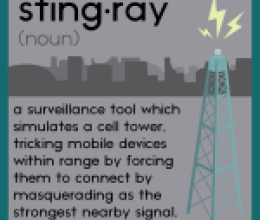
By Lauren Biksacky, Legal Intern
“Those who do not remember the past are condemned to repeat it.” -George Santayana
This week, the undergraduate and law student interns at the ACLU of Illinois visited the Chicago History Museum to glimpse into a set of vast archives from the past that many did not even know existed: the once secret files of the Chicago Police Department’s “Red Squad.” The Red Squad collection contains the files from the Chicago Police Department’s surveillance unit, who were tasked with detailing the actions of suspected “subversive” individuals, groups, and gangs in the mid-20th century. The unit spied on the political and social activities of Chicagoans, primarily in the period of social unrest of the 1950s and 1960s.
In the court case of ACLU v. Chicago, (often called the “Spy Case”), the ACLU led the charge to challenge these invasive police surveillance activities. The case was settled in 1982, and Judge Susan Getzendanner of the United States District Court for the Northern District of Illinois issued an order that deposited these police records at the Chicago History Museum and imposed certain restrictions on access to and disclosure of the records. The interns visited the History Museum with the purpose of learning more about the history of the ACLU, its mission, and the values it represents. In doing so, they were able to see the fruit of the labor of the ACLU staff and attorneys who came before them with the mission of protecting civil liberties, and how the impact litigation of the ACLU can produce societal change. This court case, along with the court-mandated access of the surveillance records, helped bring to light the abuse and harassment by the Red Squad. In the wake of recent exposure of the NSA’s extensive surveillance activities, viewing the archives of the massive Red Squad surveillance could not come at a more salient time. With the recent disclosures that have shown that the government has access to the calls, texts, and emails of hundreds of millions of Americans, the interns wondered after viewing the Red Squad files whether in their lifetimes they would see the repetition of past mistakes of history.
The Red Squad collection is open for public research and study at the Chicago History Museum.
Interested individuals should review policies for accessing the materials prior to visiting.





